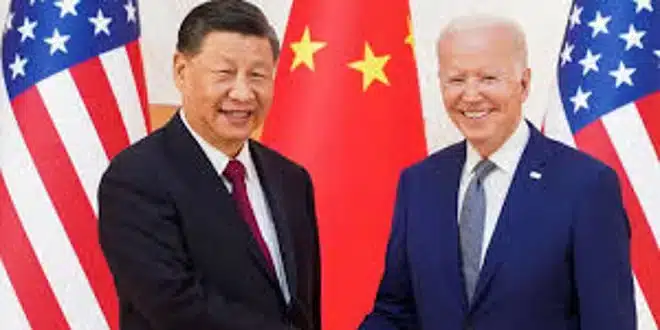Ongoing tensions between Beijing and Washington are the primary concern for American businesses in China, as revealed in a recent report by the American Chamber of Commerce in China. The report, released on Tuesday, highlighted other significant challenges faced by U.S. companies, including inconsistent regulatory practices, rising labor costs, and data security concerns.
Despite assurances from Chinese leaders that foreign investments are welcome, American companies report continuing to face significant barriers. These include discriminatory policies and a local climate that often casts suspicion on foreign entities.
The report recognized some positive developments in diplomatic relations, such as the 2023 summits between Chinese leader Xi Jinping and U.S. President Joe Biden. However, it also expressed concerns about the upcoming U.S. presidential election in November and its potential impact on the business climate, particularly if Donald Trump, known for his harsh stance against China and protectionist policies, were to win.
U.S. Treasury Secretary Janet Yellen’s recent trip to Beijing was noted as a positive step. She discussed issues like the potential overcapacity in critical Chinese industries which might undermine U.S. and other foreign manufacturers. This dialogue was seen as a constructive way to handle complex issues without acrimony.
The Chamber emphasized the importance of continued high-level dialogue and communication to address ongoing issues. American businesses are reportedly frustrated with the slow progress in leveling the playing field for foreign and local companies in China. Additionally, new U.S. export controls and regulations have increased the cost and complexity of operating in China.
Despite these challenges, American companies did report profits in China last year, though their optimism about future profitability in 2024 was cautious.
The report made several recommendations to the Chinese government, urging for the implementation of transparent and fair economic policies. It also called for a clarification of China’s anti-espionage laws, which have been cited in raids on foreign firms under the guise of national security concerns.
On the U.S. side, the report suggested clearer visa policies for Chinese students and encouraged American students to study in China. It also advised against unilateral controls that might not effectively secure national security and foreign policy objectives, proposing instead that U.S. authorities engage with Chinese companies to address concerns before imposing sanctions.
Overall, while American companies acknowledge the significance of the Chinese market, their enthusiasm for increasing investments has been tempered by the evolving challenges, as highlighted in this extensive 617-page report which covers a wide range of industry concerns.


